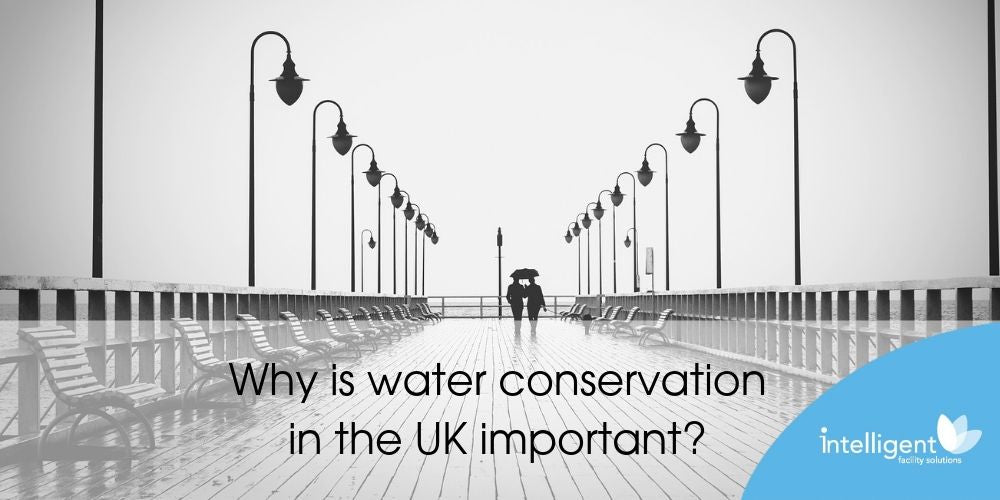Why we need to start saving water in a nutshell
This blog is meant to be a summary of a more comprehensive post we wrote titled Why is saving water important? While still over 1200 words, it is meant to highlight the key points found in the much more comprehensive article. Water conservation is a vast and important subject, and we feel that even in this summary piece, a certain level of depth is important.
Why do people keep telling us we need to save as much water as possible? Water is all around us, isn’t it?
Yes, water is all around us, but it is not all available to us. The problem is that we as a society take water availability for granted.
As you will already know, water is essential for life. It has a vital role in the body and for growing the food we eat. Approximately 71% of the earth is water. Via the water cycle this is constantly being recycled. We never lose or gain water during this cycle. Although this seems a large amount, it is a finite source for us to use with limited amounts available at any one time.
A big problem is less than 1% of the earth’s water is usable to us! The rest of the water is stored in the sea, frozen in icecaps and floating around in the atmosphere. Out of the low percentage of freshwater available for human use, a massive 70% goes toward growing food and raising animals. Therefore, there is only a limited amount of freshwater available for other purposes.
Sea water can’t be used directly to provide drinking water as its salt content is too high. The process to remove salt from sea water is very costly, uses a lot of energy and has a large environmental impact, so is not a good source to use.
It’s always raining, how can there be a shortage?
It doesn’t rain as much in the UK as you may think. SES water suggests that “London receives less rainfall than cities such as Rome, Miami, Sydney and Barcelona. If you divide the rainfall per person, we have less than Morocco and Turkey. South-east England receives 50% less rainfall than the rest of the UK.”

Key point: Although there is a vast amount of water on earth, and this never changes in volume, there is only a certain amount of usable water available at a certain point in time. It all depends where in the water cycle it is.
What are the issues with water availability?
There are a number of things which are causing a lack of water availability in the UK:
Climate change
The irregularity of rainfall is making it harder to predict availability. Droughts and flooding are becoming increasingly common events.
Tree planting is a vital step in combating climate change – however, if more trees are planted in the UK then they will also place an increased demand on an already limited water supply.
Population growth
“The UK population is projected to increase from an estimated 65.6 million in mid-2016 to 69.2 million in mid-2026.” “The UK population is projected to pass 70 million by mid-2029 and be 72.9 million in mid-2041.” The Office for National Statistics.
The rates of abstraction of water are already at levels which are not sustainable. A growing population, demanding more water in an instant, will only worsen this. Along with this, creating energy is a major use of water and the increasing population means an increase in energy demands which in turn affects climate change.
Changes in land, rivers and wetlands use
The amount of land available to abstract water from is reducing. At the same time abstraction from other sources needs to be reduced as it is having a detrimental effect on the environment.
Leaks and losses of water
In 2017 it was reported that a staggering 3 billion litres of water was lost each day through leaks. Water companies are looking into this more and more and getting results. But this isn’t a quick fix and we need to do our bit as individuals as well.
The extent of the problem
Key point: the demand for water is outweighing the ability to supply at the rates it’s being demanded and this is only going to get worse if things don’t change. The demand needs to slow down by not wasting what’s available at a given point in time.
The infrastructure and processes of getting water are at unsustainable levels. A report from Water UK states that there could be a significant deficit in water availability by the 2040’s. In 2018, the Environmental Agency stated that if we do not increase water supply, reduce demand and cut down on waste there may be serious water shortages by 2050.
There is a 25% chance that over the next 30 years a large number of households and businesses will have their water supply cut off because of a severe drought.
Yes, waste water is returned during the water cycle because, as stated above, water is not gained or lost it is constantly recycled and has been since before prehistoric times. However, the problem is that the water returning can be a long way from where it can be abstracted again. There is also the increased cost in time and energy required to make the water safe again; a process the water has been through already. The waste may also return straight to the sea, making it immediately unusable.
A study carried out by the Environment Agency found that the UK Water industry contributes 0.8% of the overall greenhouse emissions created. Regardless, reducing the amount of water waste which needs to be retreated can help the planet battle climate change.
What needs to happen for better water conservation?
DEFRA suggests it’s estimated that if leakage was reduced by 50% and people decreased their consumption to 100 litres per day (in the UK, the average person uses 142 litres per day) there would be enough water for more than an additional 20 million people by 2050.
Key reasons why we need to save water:
- Although water makes up the majority of the world, there is a very small percentage that can be used for daily consumption.
- Out of the small percentage only half of this is accessible as freshwater.
- The amount of abstraction of water has now reached unsustainable levels. The demand is outweighing the supply capabilities.
- It is predicted that we will not have sufficient water supplies by 2050 at these current rates.
- Reasons for shortages include climate change, increased population size, types of Energy creation, land use and waste.
For more in depth information please read the full blog post here.
Make sure you visit our “How to conserve water – the ultimate beginners guide” blog post for 32 top tips you can easily do to start saving water today.
Be sure to regularly visit our save water, save money, reduce waste blog category to keep up to date with all things related to water conservation.





